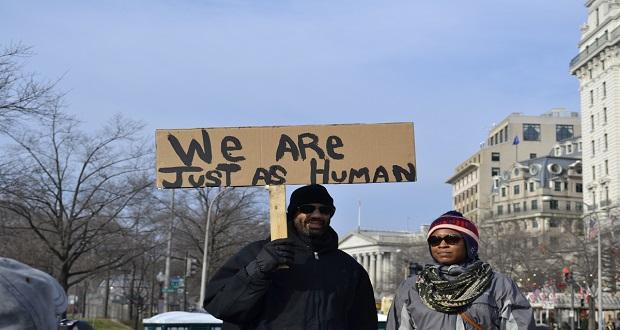
Last week, President Trump’s former personal lawyer and “fixer”, Michael Cohen, testified publicly before the House Oversight Committee. I was happy to see the three new congresswomen – Reps. Alexandria Ocasio-Cortez (D-NY), Ayanna Pressley (D-Mass.), Rashida Tlaib (D-Mich.) – involved in the questioning…because representation matters. But what I was not excited to see, and what was most disturbing to me from the hearing, was Rep. Mark Meadows (R-NC) response to Cohen’s assertion that President Trump is a racist.
In his opening statement, Cohen said, “I am ashamed because I know what Mr. Trump is. He is a racist. He is a conman. He is a cheat.” It was apparent that Rep. Meadows took great offense to him calling the President a racist. How could this be true? After all, Trump appointed Lynne Patton, a black woman, to the position of regional administrator at the US Department of Housing and Urban Development. He even had Ms. Patton stand up during the whole ordeal. As further proof that Mr. Cohen’s assertions must be false, Rep. Meadows stated that he had never heard President Trump make a single racist statement in his presence. I kid you not, this happened (watch the video below).
This moment seemed to go on without the bat of an eye from anyone in the room, until it was Rep. Tlaib’s turn for questioning. Rep. Tlaib started her remarks by saying, “The fact that someone would actually use a prop, a black woman, in this chamber, in this Committee (heavy sigh) is alone racist in itself.” As Rep. Tlaib continues to make her statement, you can hear Rep. Meadows interrupting and over talking her, objecting to what she said. You can watch the full exchange in the video below. This is a textbook case of white fragility.
As Rep. Tlaib continues to make her statement, you can hear Rep. Meadows interrupting and over talking her, objecting to what she said. This is a textbook case of white fragility. https://www.youtube.com/watch?v=AzkgmNpVzg4 Click To TweetIn one of the installments of our series on Fragility, Travis Jones shares how Robin DiAngelo, author of the book White Fragility, defines this phenomenon: white fragility is largely the result of absorbing messages of white innocence and superiority—it is the subsequent guilt, confusion, anger, and defensiveness of one’s goodness in the face of conversations around race. Furthermore, DiAngelo describes the behaviors of white fragility as ranging from crying to withdrawing, avoiding, absolving, and arguing. Sounds pretty much like Rep. Meadows’ reaction, don’t you think?
My intent is not to confirm or deny if Rep. Meadows is a racist; however, this exchange is a classic example of what happens when white people do not want to confront issues on race or racism. White people often go on the defensive – as you saw happen here. Rep. Meadows even made a point to mention that his “nieces and nephews are people of color” and that Rep. Cummings (D-Md.), Chairman of the Oversights Committee, is his friend and could vouch for his character. DiAngelo describes these as “color celebrate” statements. These are statements that claim that the person “sees and embraces racial difference.” She further posits that they exempt the individual from any responsibility for or participation in the problem – “they take race off the table, and they close (rather than open) any further exploration.”
My intent is not to confirm or deny if Rep. Meadows is a racist; however, this exchange is a classic example of what happens when white people do not want to confront issues on race or racism. Click To TweetDiAngelo also points out the toll on people of color when they must defend or appease white fragility. You could see this play out in the exchange, when Rep. Cummings intervened and confirmed that Rep. Meadows is one of his best friends (and therefore could not be racist, right?), and when he insisted that Tlaib clarify that she wasn’t calling Rep. Meadows a racist specifically.
DiAngelo also says that white fragility manifests if one thinks there is a suggestion that their behavior had a racist impact. “You must have misunderstood me. You will need to allow me to explain myself until you can acknowledge that this was your misunderstanding.” In other words, you, person of color, were wrong. This is exactly what Meadows implied in his initial insistence that Tlaib retract her assertion that his action was racist.
We need more people like Tlaib, who are willing to call “out” white fragility and we need more dialogue that calls “in” white people who may not even be aware of the ways in which their actions are impeding our progress towards inclusion and equity.


















